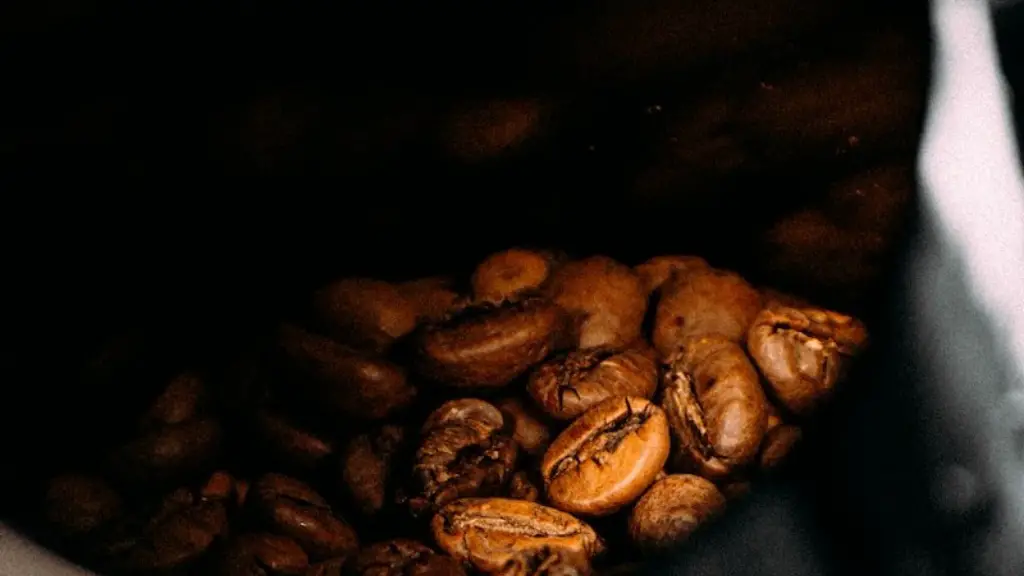Caffeine Intake During Pregnancy
When a woman discovers she is pregnant, she often begins to pay closer attention to her diet, seeking out the healthiest foods while reducing or eliminating processed options. Women may also become more concerned with the amount of caffeine they are consuming each day, knowing that it can immediately enter the bloodstream of their developing baby. The question of how much coffee is safe to drink while pregnant can be tricky to answer, as the amount of caffeine can range greatly depending on the blend and combination of brews.
Caffeine is a stimulant and has the potential to cross the placenta, reaching a fetus’s bloodstream. The research isn’t clear about its effects on the baby, but most doctors agree that quantity is the most important factor. Research suggests that it’s safest for pregnant women to drink no more than one or two small cups of coffee a day.
High levels of caffeine consumption during pregnancy can affect the fetus’s growth pattern and lead to an increased risk of low birth weight. The American College of Obstetricians and Gynecologists (ACOG) recommends that pregnant women limit caffeine consumption to less than 200 mg per day or drink no more than two 8-ounce cups of coffee per day. ACOG also notes that pregnant women should be aware of the level of caffeine in their foods as well, including chocolate, soft drinks, and tea.
In addition to concerns about the amount of caffeine consumed during pregnancy, some women are also mindful of the source of their caffeine. Many independent roasters recommend capping intake from a store-bought roast to the minimum recommended by ACOG, as store-bought coffees often have added sugars, syrups, or other ingredients that can exceed the 200 mg mark.
However, women can still get their daily dose of caffeine by switching to brewed varieties that are free of additives. Roasting your own beans at home and brewing them in a French press or an espresso machine are both good ways to ensure that you are not ingesting added sugars and artificial flavors.
In addition to the risk posed by high levels of caffeine intake during pregnancy, some experts suggest that simply consuming too much coffee while pregnant could pose other risks. Caffeine is a diuretic, which means that it increases the need to urinate; this could lead to dehydration, which can lead to a host of other problems, such as carpal tunnel syndrome, lower birth weight, and even preterm delivery. It’s best to stay hydrated and stick to the recommended 200 mg or less of caffeine per day.
Secondary Effects on Pregnancy
In addition to the risks posed by excessive caffeine intake, some experts note that women who consume too much coffee during pregnancy are at an increased risk of developing gestational hypertension or preeclampsia. Though the condition is typically characterized by high blood pressure, it can often lead to other complications, including seizures, stroke, and evenstillbirth. While the amount and source of caffeine are important factors in determining if a woman is at risk for gestational hypertension, other lifestyle factors like smoking and poor diet can play a role as well. It’s important for pregnant women to maintain a healthy diet and exercise routine to reduce their risk.
It’s also important to note that no two women are the same when it comes to caffeine consumption, and some women may be more sensitive to its effects than others. Women who are already at an increased risk of preeclampsia due to underlying medical conditions or are carrying multiple babies should limit their caffeine intake even more than is generally recommended. Additionally, women who have a family history of hypertension should also be mindful of their caffeine consumption, as genetics can also play a role in pregnancy complications.
If a woman is concerned about her caffeine intake, she should consult her doctor or midwife first. A physician will be able to provide personalized advice on the amount of caffeine a woman can safely consume during her pregnancy and make recommendations for reducing or eliminating it altogether. Additionally, there are online resources and apps that women can use to keep track of their daily caffeine intake.
Cultural Considerations
When discussing caffeine consumption during pregnancy, it’s also important to consider cultural influences. Some cultures heavily rely on coffee, both as a part of their diet and as a social activity. For women in those cultures, it can be especially difficult to reduce or eliminate their coffee intake during pregnancy. It’s important to be aware of cultural considerations when discussing caffeine intake, as practices like coffee ceremonies can be a vital part of maintaining a sense of community.
However, though it can be difficult to reduce caffeine intake during pregnancy, it is still important to restrict one’s intake as much as possible to ensure a healthy pregnancy. Women who are worried about their caffeine intake during pregnancy can try decaffeinated options or opt for other alternatives, such as herbal teas. Additionally, cutting back on added sugars and other flavoring agents that can increase the amount of caffeine in coffee can also help a woman maintain her health during pregnancy.
Alternative Beverages During Pregnancy
There are other alternatives and considerations to coffee during pregnancy that women can explore to stay healthy. For those looking to cut back on caffeine while still allowing themselves some indulgence, there are naturally decaffeinated coffee options on the market. Additionally, there are specialty coffees, such as nitro coffees, with low levels of caffeine that can fill the void of regular coffee during pregnancy. Additionally, beverages such as tea and warm lemon water can provide a caffeine-free alternative for women looking for comfort without the added risk.
In addition to warmer beverages, pregnant women can opt for over-the-counter energy drinks to curb fatigue. While the energy drinks tend to be packed with sugar and other additives, they often contain at least one-third of the caffeine of a cup of coffee. However, it’s important to check the label of the energy drink to make sure it contains less than 200 mg of caffeine per can, as some energy drinks can exceed the recommended daily amount of caffeine in a single serving.
Lastly, pregnant women can also opt for natural energy boosters to keep energy up and fatigue at bay. Eating small meals more regularly throughout the day can help keep energy levels up, and adding snacks like nuts, fruits, and vegetables to the diet can also help to increase energy. Additionally, exercising and getting plenty of rest can help keep a woman’s energy levels up throughout her pregnancy.
Avoiding Caffeine Addiction
Though caffeine can be consumed responsibly during pregnancy, it’s important to remember that caffeine is a drug, and even moderate consumption can become an addiction. That addiction can follow a woman throughout her pregnancy, as well as her post-natal health and lifestyle. Additionally, it’s not just coffee that should be taken into consideration; other sources of caffeine, such as chocolate, tea, and energy drinks, should also be avoided in order to reduce the risk of addiction. Keeping track of the amount of caffeine consumed through these sources can help greatly in avoiding an unnecessary caffeine addiction.
Caffeine addiction can be a difficult habit to break and can lead to other health problems down the road. Breaking the habit before pregnancy can help make reducing and eliminating caffeine consumption during pregnancy much easier. Speak to a doctor or nutritionist if you’re concerned about developing an addiction to caffeine, as professionals can provide tailored solutions to maintain a healthy lifestyle.
Maintaining Diet During Pregnancy
Keeping a close eye on diet can help keep caffeine consumption within safe limits. Eating plants is especially beneficial, as plant-based foods are typically low in sugar and artificial ingredients and high in fiber, vitamins, and other micronutrients. Additionally, staying hydrated and avoiding sugary drinks, such as soda and juice, can help reduce the amount of artificial ingredients and caffeine in a woman’s diet.
Consuming healthy proteins, such as fish or poultry, can also be a boon for pregnant women. Lean proteins are typically low in calories, fat, and sodium and are packed with essential nutrients and vitamins. These proteins can help keep a woman energized and ready to take on the day. Additionally, nuts, beans, and legumes can all provide plenty of energy while providing essential protein and micronutrients.
Of course, pregnant women shouldn’t deny themselves treats and indulgences; they should simply be mindful of what they eat. If a woman opts for a treat, it’s best to opt for something that is low in sugar and calorie content, such as dark chocolate or a glass of wine. Additionally, pregnant women should ensure that they’re always eating a balanced diet and drinking plenty of water or other healthy fluids to stay hydrated throughout the day.
Conclusion
Pregnant women need to take extra care when it comes to their diet, particularly when it comes to their caffeine intake. While research is still limited on the amount of caffeine that is safe for a pregnant woman to consume, most physicians agree that it’s best to keep it under 200 mg or two 8-ounce cups of coffee per day. Women should also be mindful of the source of their coffee, as some store-bought coffee can contain added sugars and other ingredients that can bring the caffeine count higher.
Maintaining a healthy and balanced diet throughout pregnancy and limiting the amount of caffeine consumed is essential if women want to reduce their risk of health issues such as low birth weight, gestational hypertension, and even preterm delivery. With a bit of effort and diligence, pregnant women can make sure they are giving their baby the best possible start to life by carefully monitoring their caffeine intake.





